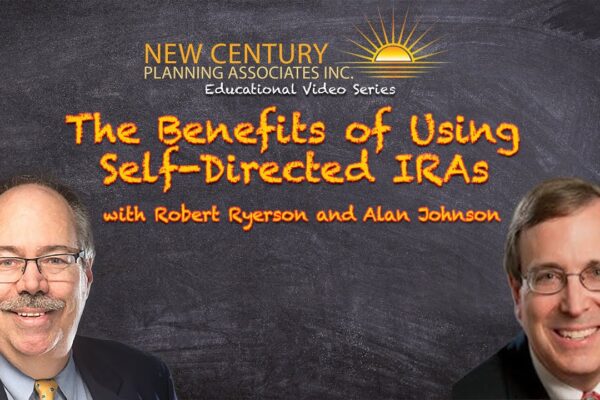Spotlight: 5 of the Best Designations for Retirement Planners
When looking for wealth management assistance and guidance, you should first make sure any prospective advisors have qualified and respected professional designations. Because the financial planning profession lacks an industry-wide regulator, there are several different designations, some of which require only minimal experience or education. Advisors who have the Certified Financial Planner® (CFP®) designation, however, have at least three years of experience and are required to adhere to rigorous standards.
Many advisors choose to build upon a CFP® designation by completing other professional accreditation programs in their practice focus. Retirement planners, for instance, can expand their knowledge and make themselves more attractive to clients by acquiring any of the following six designations.
 1. Chartered Retirement Planning Counselor (CRPC)
1. Chartered Retirement Planning Counselor (CRPC)
Awarded by the College for Financial Planning (CFFP), the CRPC designation is one of many that can help advisors more effectively assist clients in retirement planning. Applicants can enroll in the program at any time and access a range of educational materials and resources including written study information, interactive quizzes, and streaming video lectures. Intended to prepare advisors to create a “road map for retirement,” the program covers specific courses such as “Maximizing the Client Experience During the Retirement Planning Process,” “Making the Most of Social Security Retirement Benefits,” and “Achieving Tax and Estate Planning Objectives in Retirement.”
Enrollment in the CRPC training course costs $1,300, and participants are required to pass the final exam within one year of enrolling in the program. Those who pass the program must complete an additional 16 hours of continuing education (CE) credits every two years to maintain the CRPC designation. According to the CFFP, the designation has contributed to, on average, a 9 percent increase in advisor earnings.
2. Chartered Retirement Plans Specialist (CRPS)
The CFFP also offers the CRPS designation to individuals who offer and emphasize retirement planning in their practice. While the CRPC designation encompasses the entire scope of retirement planning, the CRPS program focuses strictly on implementation techniques for structured, company-appropriate retirement plans. Enrollment costs $1,300, and participants can choose to attend live online class sessions or view pre-recorded, instructor-led sessions.
Selected topics in the course include “Introduction to ERISA and the Fiduciary Standard” and “Retirement Plan Solutions for Small Business Owners.” To earn the CRPS designation, program participants need to score 70 percent or higher on the 80-question exam.
 3. Certified Retirement Services Professional (CRSP)
3. Certified Retirement Services Professional (CRSP)
CRSP is another professional designation that focuses on the employee benefit aspect of retirement planning. Administered by the American Bankers Association, the program curriculum covers the following three sections: plan type & design, laws & regulations, and investments.
Those who pass the course, then, should have a thorough understanding of defined contribution and defined benefit plans as well as the tax elements and legal requirements applicable to each type. They will also gain knowledge in various investment vehicles and regulatory compliance under ERISA, IRS, SEC, FDIC, OCC, and PBGC.
Candidates must have at least five years of experience in ERISA and IRS Code/Regulations or three years of experience combined with the completion of an employee benefit program approved by the ABA Institute of Certified Bankers. They must also have a letter of recommendation from their manager. The exam is composed of 150 multiple-choice questions.
4. Qualified 401(k) Administrator (QKA)
The QKA designation is a relatively new course administered by the American Society of Pension Professionals & Actuaries (ASPPA). Designed to help advisors and other financial service professionals develop technical proficiency in working with 401(k) plans, the program builds on the ASPPA Retirement Plan Fundamentals certificate course and covers 18 topics over two separate parts: plan management and testing & compliance. The plans each cost $750 and include nine courses, a practice test, and a final exam.
Topics covered across both parts include distributions, eligibility & plan entry, employer contributions, plan disclosures, ethics, and top heavy plans & key employees. The program is self-paced and uses real-life examples in its course material to promote knowledge retention.
To maintain QKA designation, members must complete at least 40 hours of CE credits every two years. They must also continue to hold membership with ASPPA.
 5. Certified Employee Benefit Specialist (CEBS)
5. Certified Employee Benefit Specialist (CEBS)
The CEBS designation allows advisors to better familiarize themselves with employee benefit plans. Unlike the aforementioned designations, there are no prerequisites for those hoping to earn the CEBS designation. However, applicants must pass five courses, which allow them to earn Group Benefits Associate and Retirement Plans Associate designations simultaneously.
Program participants can study and take tests at their own pace. They simply have to order study materials online and select the time at which they prefer to take the 100-question exam. They can also register for instructor-supported online study groups.
6. Certification in Long term Care (CLTC)
The CLTC® (Certification in Long-Term Care) program was created in 1999. It focuses on the discipline of extended care planning. It provides professionals the critical tools necessary to discuss the subject of longevity and its consequences on their client’s family and finances. Students learn how to mitigate these consequences by developing a plan to protect their clients and their families.
The designation has been recognized and supported by The American College, CFP Board, NAIFA, NAHU and major insurance carriers. The designation may be obtained through our two day live CLTC Master Class or online eCLTC.
Author
Robert Ryerson
Although Robert M. Ryerson completed all the necessary requirements to earn bachelor of arts degrees in both English and economics at Rutgers University, college policy at the time prohibited the issuance of dual degrees. As a result, he graduated from Rutgers with a single bachelor of arts in economics before finding employment as a stockbroker with Shearson Lehman American Express in New York City 1984. Robert M. Ryerson has since established himself as a respected estate administrator and legacy planner. In addition to his economics degree from Rutgers, Mr. Ryerson holds several professional designations including Retirement Income Certified Professional (RICP)®; Certified In Long Term Care (CLTC)®; Certified Financial Fiduciary (CFF)®, and Certified Identity Theft Risk Magenament Specialist (CITRMS)®. He has shared his knowledge on the subject of identity theft as the author of the book What’s The Deal With Identity Theft?: A Plain-English Look at Our Fastest Growing Crime. He has also covered identity theft issues directly for students as the instructor of the adult education course Understanding Identity Theft: Our Fastest Growing Crime.






